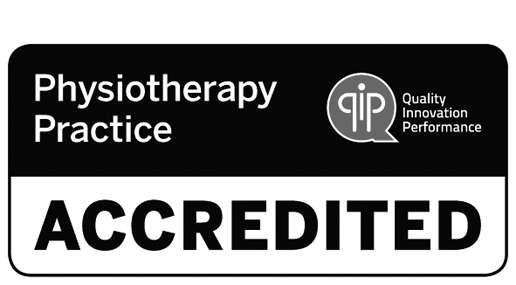We Can All Support The Psychological Impact of Prostate Cancer
Almost one-third of men with prostate cancer will experience some form of psychological distress across the different stages of the disease and throughout the treatment spectrum. Compared with the general population, men with prostate cancer are twice as likely to experience depression and three times more likely to experience anxiety1. They also have an increased risk of suicide compared to their non-cancer peers, with the highest risk in the first year of diagnosis and connected to the severity of clinical stage at diagnosis1.
Over 80% of men report unmet supportive care needs relating to sexuality, psychological, health system and information issues2. This is particularly prevalent at the start of treatment when side effects are new or unknown. At 15 years post-diagnosis, over one-third of these men are still reporting unfulfilled physical, psychological, sexual, existential and informational needs2.
It seems remarkable that to date a systematic approach to the psychological care of men with prostate cancer has not been described. It is now the most common cancer in Australia and there are a large number of men who need more support.
What Role Can Non-Psychologists Play in Providing Support?
Professor Suzanne Chambers (AO) has been working as a practitioner-researcher in psycho-oncology for over 30 years. Along with Nicole Heneka and Jeff Dunn, she has co-authored The Health Professionals Guide to Delivering Psychological Care for Men with Prostate Cancer3 to assist in providing evidence-based, effective psychological care.
We know psychological outcomes are influenced by:
- How a person thinks about their cancer and their situation or context
- The way they respond to their thinking
- Their actions
The guide applies a cognitive behavioural approach drawing from three main perspectives:
- Stress and coping
- Problem solving
- Psychological flexibility
Via a person-centred approach, the health professional tailors their intervention to the unique needs of each individual man. Through acknowledging masculine values in the design of care and identifying personal strengths, men are provided tools to build resilience in the face of their cancer diagnosis.
What Role Can Pelvic Health Physiotherapists Play?
As Pelvic Health Physiotherapists, we are well placed to assist in men’s physical outcomes post surgery, as well as their psychological care. The aim of a biopsychosocial physiotherapy program is to improve physical function, urinary incontinence; AND their quality of life and emotional wellbeing4.
This is achieved by:
What Role Can All Health Professionals Play?
It is encouraging that Professor Chambers believes that with appropriate knowledge and training, non- psychologist health professionals can provide adequate supportive care needs. We shouldn’t be afraid that we are practising out of scope or don’t have the tools to manage conversations about emotional wellbeing. This is well established when it comes to childhood trauma, where adult health and need for medical treatment can be positively influenced simply by
asking about adverse childhood events, acknowledging the past trauma, and listening to the patient’s story.
These conversations, along with utilising the tools provided in The Health Professionals Guide to Delivering Psychological Care for Men with Prostate Cancer3 may also encourage men to seek formal psychological support where they previously may have been reluctant towards it.
Suzanne Chambers also holds a
training program for health professionals to support the implementation of this model. The workshops are designed to support the delivery of evidence-informed care that addresses the psychological challenges commonly experienced after a diagnosis of prostate cancer. Melissa Martin, one of our very experienced Pelvic Health Physiotherapists, has completed this workshop and is disseminating the learnings to the entire WMHP team.
We thank Professor Suzanne Chambers for her contribution to this article.
We would like to acknowledge that when we use the term men throughout this article, we are referring to people who were born with a prostate gland.
References
1. Watts S, Leydon G, Birch B, et al. Depression and anxiety in prostate cancer: a systematic review and meta‐analysis of prevalence rates. BMJ Open. 2014;4(3):e003901.
2. Chambers SK, Hyde MK, Smith DP, Hughes S, Yuill S, Egger S et al. New Challenges in Psycho‐Oncology Research III: A systematic review of psychological interventions for prostate cancer survivors and their partners: clinical and research implications. Psycho‐Oncology. 2017;26:873–913.
3. Chambers SK, Heneka N, Dunn J. The health professionals guide to delivering psychological care for men with prostate cancer. Samford Valley, Australia: Australian Academic Press Group; 2021.
4. Hall LM, Neumann P and Hodges PW. Do features of randomized controlled trials of pelvic floor muscle training for postprostatectomy urinary incontinence differentiate successful from unsuccessful patient outcomes? A systematic review with a series of meta-analyses. Neurourol Urodynam. 2020;39: 533-546.
5. Hodges PW, Stafford RE, Hall L, Neumann P, Morrison S, Frawley H et al. Reconsideration of pelvic floor muscle training to prevent and treat incontinence after radical prostatectomy. Urol. Oncol. 2020;38: 354-371.
6. Mungovan SF, Carlsson SV, Gass GC et al. Preoperative exercise interventions to optimize continence outcomes following radical prostatectomy. Nat Rev Urol. 2021: 18; 259-281.
October 2022





